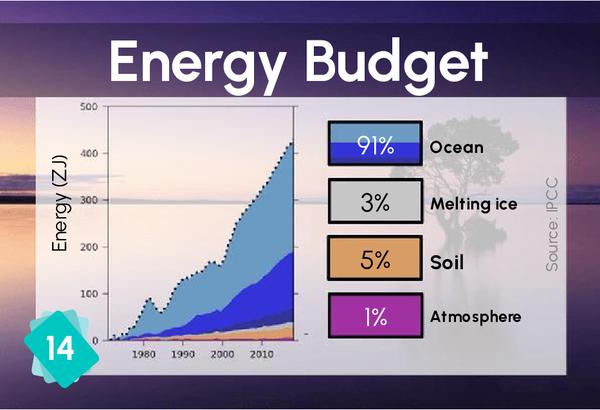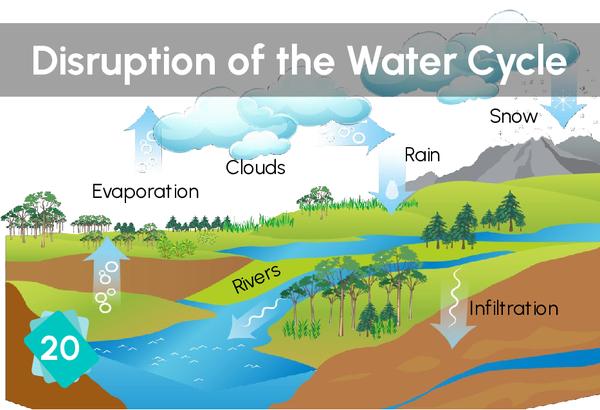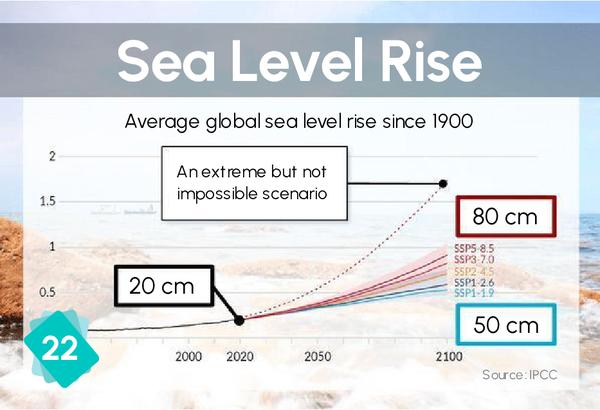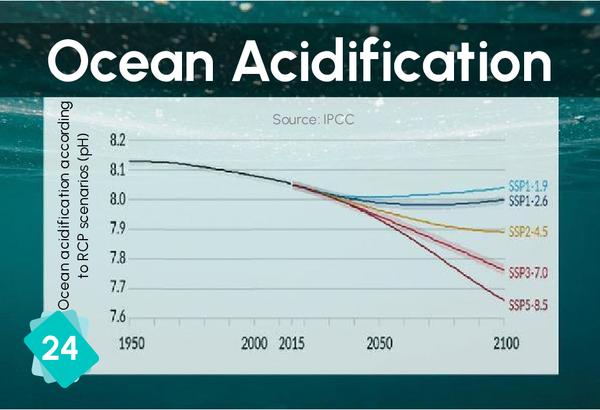17 - Rising Water Temperature
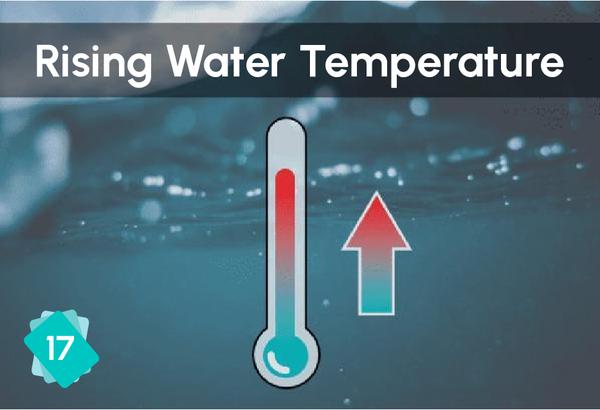
✏️ This explanation does not yet exist in your language. Please fill this Google Form if you want to help us!
The ocean is warming by only about a tenth of a degree at the surface and even less under water. Why so little when it absorbs 91% of the excess energy on Earth? This is because it is much larger than the atmosphere and it has a much greater calorific capacity. To measure this, you need to remember that the ocean covers 71% of the Earth's surface and that it has a depth of 4000 m on average. The atmosphere extends over a greater height, but if brought back to the same density as water, it would only be 10 m thick. (That's why we gain one atmosphere of pressure every 10 m when we dive.) Water expands very little. How can warming the ocean by a tenth of a degree result in a rise in the water level? A first answer is that the ocean is 4000 m deep on average, so a very small expansion is enough to amount to a few centimetres.
1Cause
4Consequences
1Wrong consequence
The increase of water temperature is not linked to ocean acidification, at least for the time being. In the long term (over several centuries), as it heats up, the water will lose its capacity to dissolve atmospheric CO2 and will become less efficient as a carbon sink. So the increase in water temperature will inhibit, to some extent, ocean acidification.



